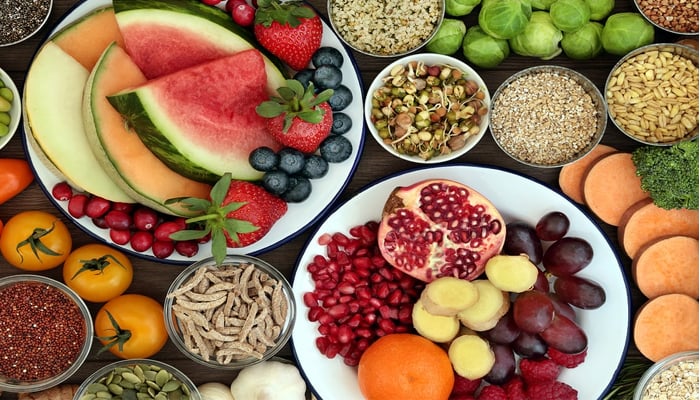
Vitamins and minerals are important micronutrients in your body.
They play an essential role in everything from strengthening your immune system and supporting bone health to maintaining energy levels.
Maintaining a well-balanced diet may assist ward off nutritional deficiencies that may lead to chronic diseases.
Related: Healthy snack idea: THIS nut helps reduce cholesterol and boost heart health
Here are a few warning signs that you may have a nutrition deficiency:
Unexplainable hair loss:
If you lose about 100 strands of hair every day, and suddenly start finding hair clumps on your pillow, then it could be a sign of severe issues such as iron deficiency, which affects your energy, and thyroid disease, which may lead to uncontrollable weight loss or weight gain.
To reduce it, consume iron-rich food in your diet, such as spinach, beetroot, and beans.
Burning sensation in your feet and tongue:
If you are experiencing a burning sensation in your tongue and feet, constipation, and dry and rough skin, then it may be a sign of Vitamin B12 deficiency that may lead to pernicious anaemia.
B12 plays a pivotal role in maintaining your health by producing haemoglobin. In addition, it supports several systems of your body, including the digestive tract.
Healthy individuals should consume up to 2.4mg of B12 daily.
Wounds healing become slow:
If your gums are swollen, bleeds, and become red after flossing and brushing, you might need to increase your Vitamin C consumption.
Joint pain:
If you are experiencing a painful sensation in your bones and joints, it could be a sign of Vitamin D deficiency, which may lead to osteoporosis.
Unlike other micronutrients such as vitamins and minerals, Vitamin D levels are regularly tested in blood tests to detect deficiencies.
Related:Ultra-Processed foods linked to increased heart disease risk, study












